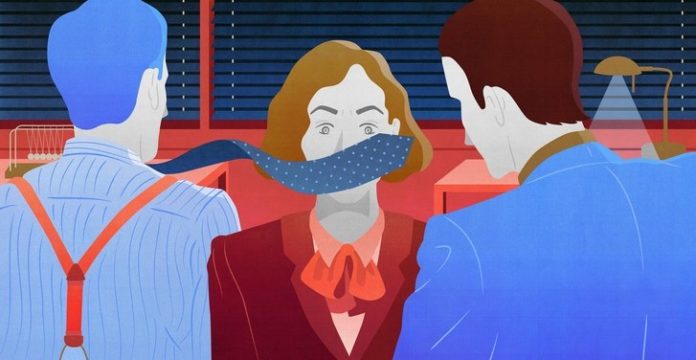Author: Martina Podpohorska
I’ve lived in Sarajevo for about six months now. I like it here, it’s familiar and comfortable. When I mention I’m from Ljubljana, people like to tell me just how much they like my city. I understand the language, and I am not worried about what people think when I speak my own. I love the food – I like sarma, ćevapćići, and how you can always find good bread. I grew up listening to the music. In fact, the only way my mother could comfort me when I was a baby was by holding me and dancing to a Plavi Orkestar CD. I have a deep admiration for the humor and I know for a fact that no one can tell you you’re an idiot quite like a Bosnian.
I’m often asked about my impressions of Sarajevo. I tend to respond by saying that while I feel at home here, it is the general attitude towards women that reminds me that I am not, in fact, at home. Recently, I said this to a man, and he was shocked. He asked me to explain what I meant by that, what was I talking about? What was it that made me think women weren’t treated well?
I think every woman is asked a question like that at least once in her life. To me, it feels a little like being asked how it is that I know I’m alive. Well, its lots of little things – mainly its that I know I’m not dead.
 It’s men not moving to accommodate me walking past them on a narrow pavement. It’s men looking surprised when I refuse to move to accommodate them. It’s men answering questions which were meant for me. It’s being on an escalator, and noticing how all the women stand in a neat line on the right, while a lone man stands proudly at the center, blocking any who wish to pass. It’s always knowing when I’m not smiling. It’s strangers touching me in ways they would never touch another man. It’s people I’ve just met calling me by my first name. Its being called »darling«. It’s my 54-year-old mother being called »darling«! It’s strangers commenting on the expression on my face when I’m working. It’s having to arm myself with a carefully constructed, yet charming response to the question »why don’t you have a boyfriend? «.
It’s men not moving to accommodate me walking past them on a narrow pavement. It’s men looking surprised when I refuse to move to accommodate them. It’s men answering questions which were meant for me. It’s being on an escalator, and noticing how all the women stand in a neat line on the right, while a lone man stands proudly at the center, blocking any who wish to pass. It’s always knowing when I’m not smiling. It’s strangers touching me in ways they would never touch another man. It’s people I’ve just met calling me by my first name. Its being called »darling«. It’s my 54-year-old mother being called »darling«! It’s strangers commenting on the expression on my face when I’m working. It’s having to arm myself with a carefully constructed, yet charming response to the question »why don’t you have a boyfriend? «.
Of course, it’s also having to explain all this to a man, taking on the highly coveted role of the Official Representative of All Women Everywhere, trying to find the right words and hoping he won’t turn this experience into an anecdote about just another silly woman.
What I find to be particularly disappointing is when bad behavior is not only tolerated, but defended by other women. »He’s young«. »He’s little«. »He can’t«. It does make me wonder though, are the only options available to women: A. be culpable, B. be a bitch, or C. move abroad?
My grandmother was one of those who chose option c. She grew up in a small village where the boys were too little and she was too great. The first time I saw her after my move to Sarajevo, I thanked her for having the courage to leave. I told her that she made a difference for her children and grandchildren when she moved to Slovenia.
After I said that, I had a disturbing thought. Surely, if our cultures and languages were so similar, the so-called general attitude towards women couldn’t be all that different?
Lo and behold, I began to notice that we didn’t have it much better. It was subtler, prettier, and more digestible, but IT was still there. I was even hearing stories of old men stopping on the street just to scold women for their behavior, appearance and even laughter.
I don’t pretend to know why things are the way they are or how they might be different in the future, but perhaps in another six months, I’ll have a better idea. I do know that at home, the symptoms might be different, but the illness is the same. I shouldn’t fall into the trap of thinking we’re somehow better. On the other hand, I think people here should stop laying that trap. Over the past six months, I’ve often heard »this is just how it is here, this is Bosnia, you better get used to it«. It’s like this pretty much everywhere, but that doesn’t make it okay.












